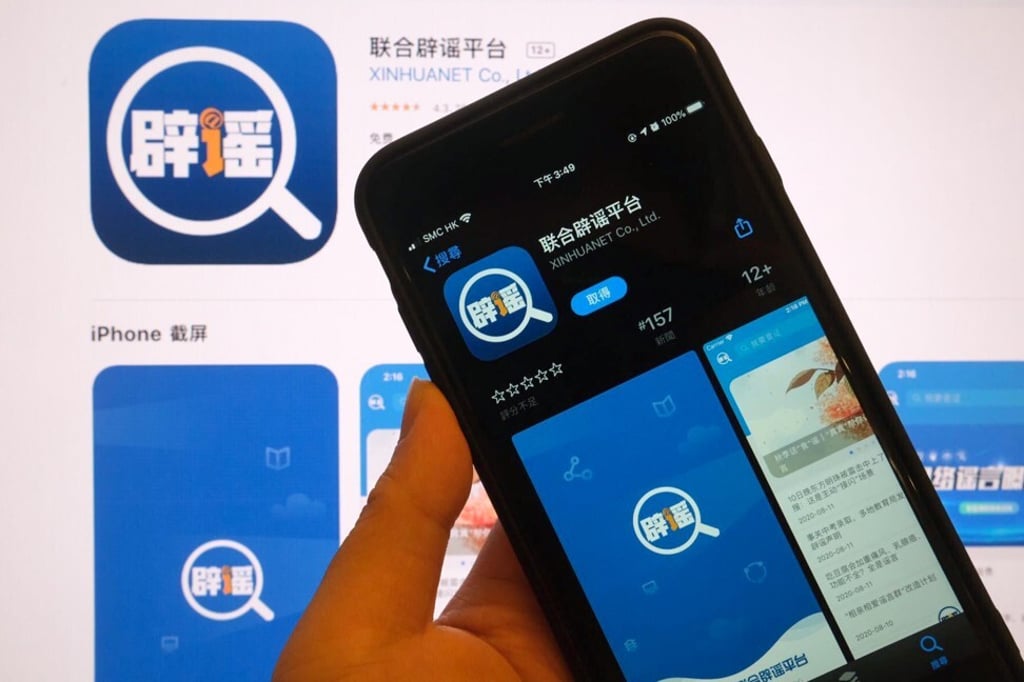China’s internet watchdog tightens online controls with new app to squash rumours
- The app, called the United Rumour Debunking Platform, was set up by the Cyberspace Administration of China and state news agency Xinhua
- It forms the basis of new mini-programs that will run within major Chinese consumer apps, including WeChat, Alipay and Baidu

China’s cyberspace watchdog has launched a new smartphone app to spearhead its latest campaign against online misinformation in the world’s biggest internet market.
The app and mini programs will enable users to quickly fact-check online rumours by providing access to relevant articles from official news media, government authorities and various industry experts. Users can also report any rumours via the app and mini programs, according to the announcement.
The new campaign by CAC and Xinhua follows their creation of a rumour-debunking website in 2018, which they had described as an initiative to “improve the online literacy of netizens and create a clean internet space”. Since its launch, that site has received more than 30,000 reports on suspected rumours and published about 9,000 articles debunking various subjects of misinformation.
